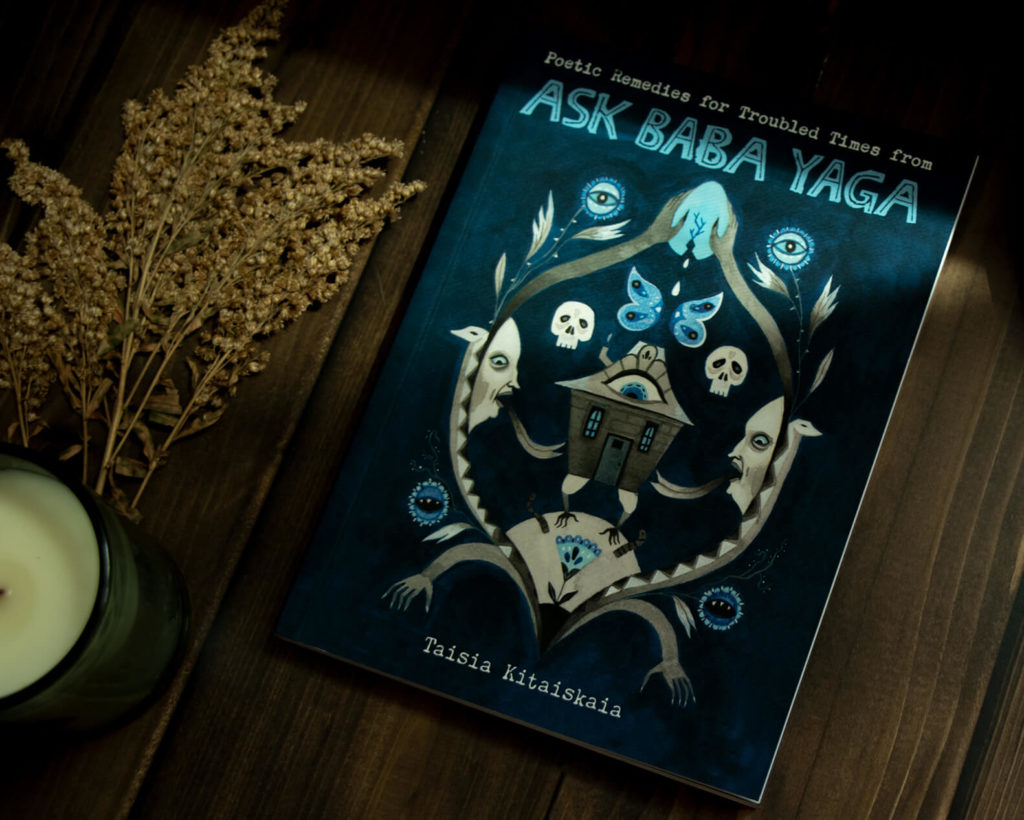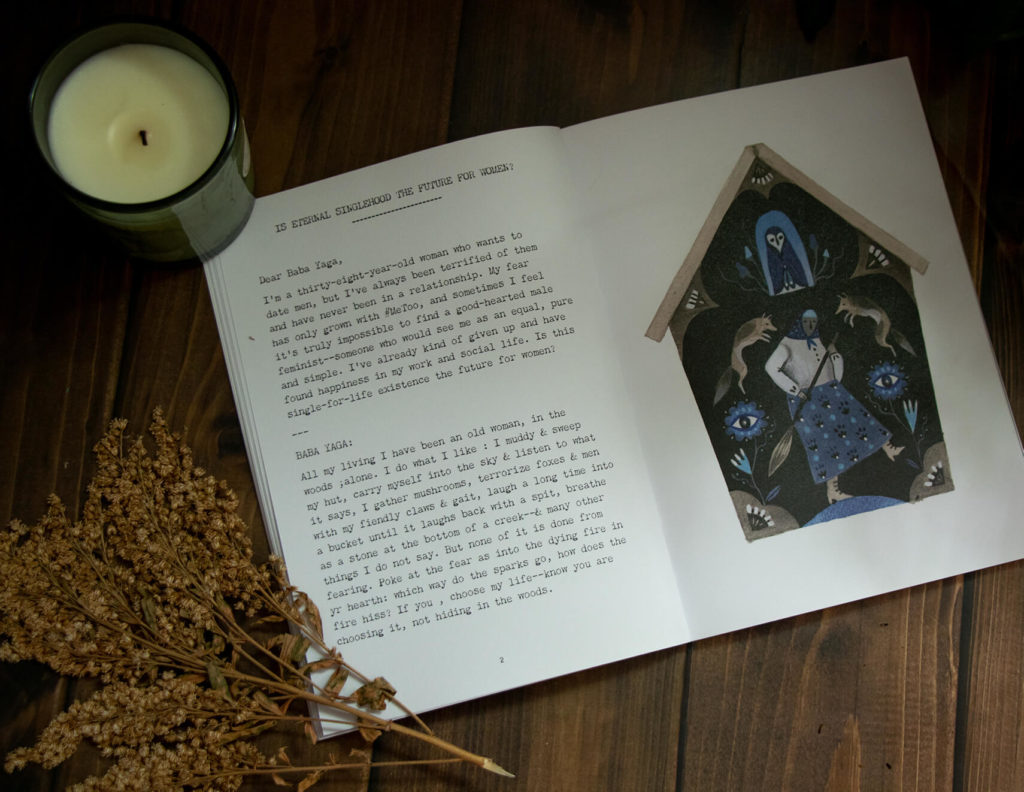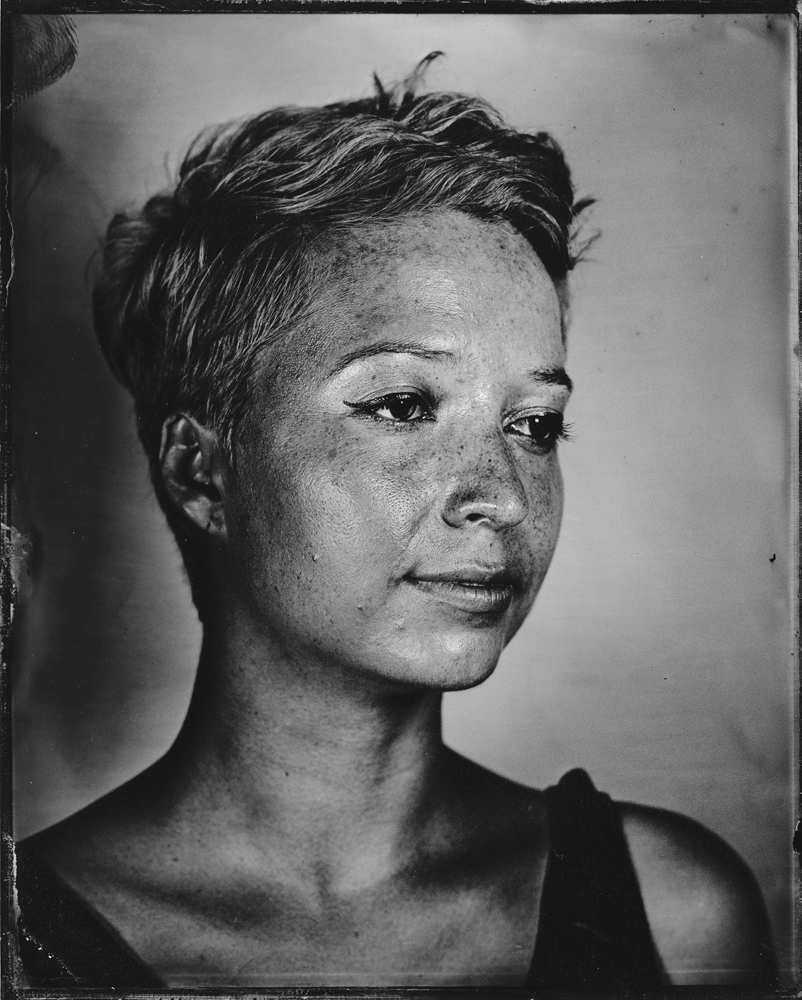7 Questions With Ask Baba Yaga Poet Taisia Kitaiskaia
Now—perhaps more than ever—people crave advice. To answer this timeless yet increasingly complicated calling, poet and writer Taisia Kitaiskaia unites both ancient and modern approaches. Kitaiskaia channels Baba Yaga, a mystical and long-standing figure from Slavic folklore, to impart her incisive, striking wisdom. Kitaiskaia pairs her embodiment of this supernatural archetype with today’s tools and techniques—as Baba, Kitaiskaia blogged for The Hairpin for years, and now operates an Instagram account with more than 14,000 followers.
This characteristic balance of old and new resurfaces in Poetic Remedies for Troubled Times, Kitaiskaia’s second collection of poetic guidance and encouragement. Published by Andrews McMeel Universal earlier this month, the book weaves together Kitaiskaia’s musings on love, passion, purpose, and much more. Simultaneously eerie and lyrical, the collection promises to haunt readers in the best way—by promising Baba Yaga is always with them, ready to be called upon. Kitaiskaia spoke with Read Poetry about this special relationship, her writing journey, and what readers can expect to take away from Poetic Remedies for Troubled Times.
_____
Kara Lewis: Your book brings a poetic take to the self-help/advice column genre. To you, how are the genres of poetry and advice connected?
Taisia Kitaiskaia: Ask Baba Yaga runs on the intimacy of requesting and offering advice, which is maybe similar to the intimacy of a poem: a kind of transfer of energy between a solo reader and a solo writer.

KL: Before being developed into books, Ask Baba Yaga was a column on the feminist site The Hairpin. How was writing for this book different than writing for the column? How does the book build upon the column and its ideas?
TK: The first book of Ask Baba Yaga advice collected the pieces in the multi-year column, and I added a few more post-Hairpin pieces, as well. This book was written from scratch—not borrowing on the column—and over the course of a few months.
The questions for this second book were collected in the same way as for the column (folks sending in their life questions), so the concerns of readers continued to drive the book. But I also had an opportunity to think more about the balance and shape of the book: how it might address our communal questions and worries at this moment. I felt more urgency in giving Baba a chance to provide comfort and peace.
KL: What about Baba Yaga drew you to adopt her persona for your work? What does taking on this identity add to your writing?
TK: I love the mythical figure of Baba Yaga, who I grew up with as a Russian child. She is wild, hilarious, and unpredictable. She is an old forest witch of Slavic folklore who lives in a hut on chicken legs. She dwells on the outside of human affairs, and is therefore deeply wise about those affairs. A lot of her message is about the peace that comes when you are attentive to what lies beyond the human—the natural world, the universe at large—and reconnecting with those mysteries. It’s been a joy working with her raspy voice all these years. By calling on Baba, I feel like I opened the portal to an enchanted, nurturing, pagan wood.
KL: As someone who writes advice and responds to specific concerns, your relationship with your audience is different than that of most poets. How would you describe your following and your connection with your readers?
TK: I’ve been touched by the trust that people place in Baba Yaga, and the vulnerability of the questions readers have sent. In fairy tales about Baba Yaga, troubled mortals seek her help, risking their lives (she is known to eat humans) in exchange for her guidance. It’s not as high stakes with the column, of course, but there’s still risk, because readers are sharing their deepest fears with a stranger. This risk is crucial to the magic of Baba’s response—because Baba only responds to genuine inquiries.

KL: Do you have a process you undergo to embody Baba Yaga?
TK: I wrote all of the Ask Baba Yaga pieces on a Royal typewriter. I would type in the question and wait for Baba Yaga’s language to come. There was something appropriately earthy about using paper instead of a screen. Typewriters are so decisive, just like Baba: They make these bold, loud sounds. Once you type something, you can’t erase.
KL: What do you hope readers gain from the book?
TK: I think this book meets us where we so often are these days—frightened, sorrowful, and disoriented. Baba can be a balm for those open to her idiosyncratic language.
KL: What’s next for you creatively?
TK: I’ve just finished writing a collection of short stories, so I’m taking a short break to read and take in more ideas. I can see myself going back to stories once I fill up the well, but who knows! I enjoy working in lots of genres.
Order Poetic Remedies for Troubled Times here.




